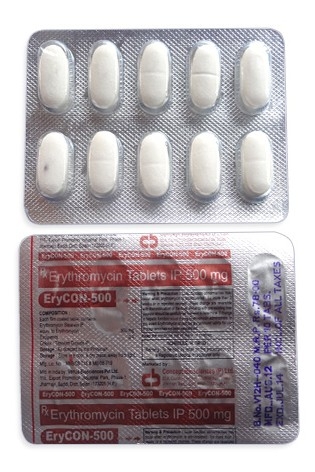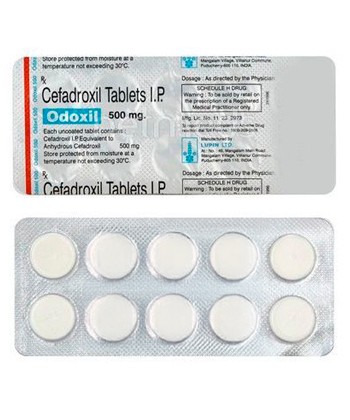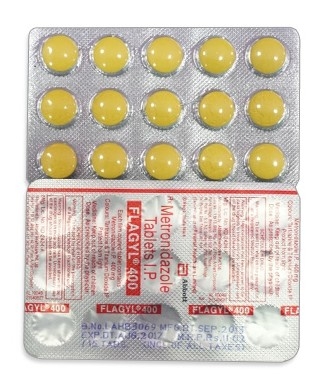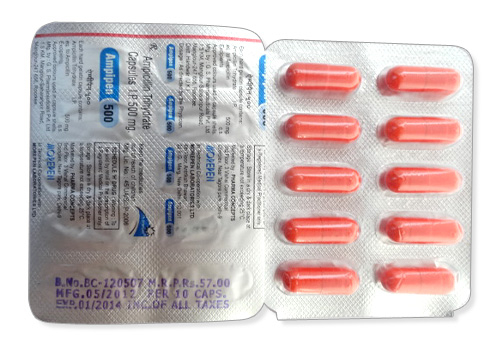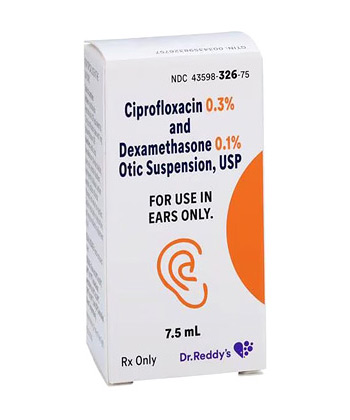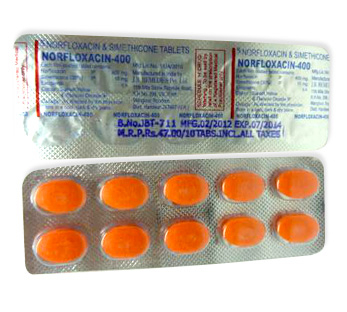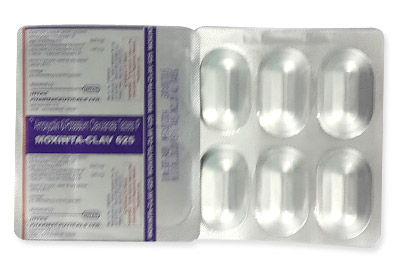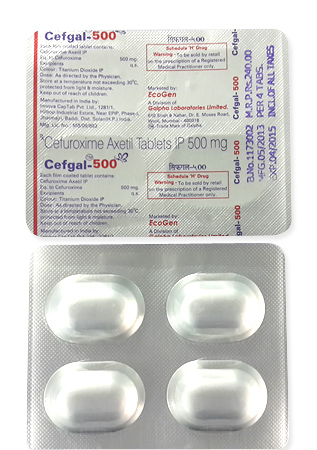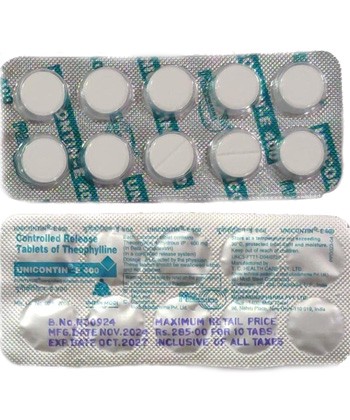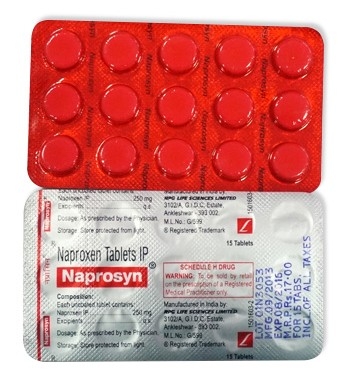Macrobid
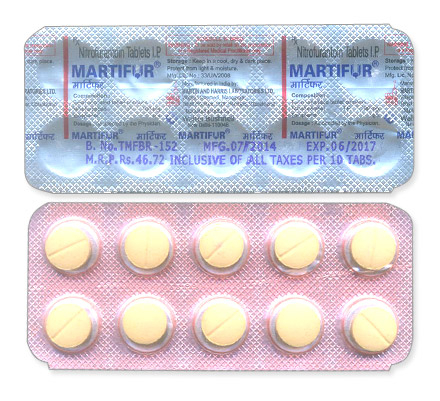
Macrobid
- Macrobid requires a prescription and can be purchased at pharmacies globally under names like Macrobid, Furadantin, or generics; in Romania, it’s registered as nitrofurantoin and available from generics suppliers.
- Macrobid treats uncomplicated urinary tract infections (UTIs) like acute cystitis by inhibiting bacterial DNA, RNA, and protein synthesis to eliminate pathogens.
- The usual dosage for uncomplicated UTIs in adults is 100 mg every 12 hours (twice daily) for 5–7 days; pediatric doses are weight-based (5–7 mg/kg/day).
- It is administered orally as capsules (most common: 100 mg strength containing a blend of nitrofurantoin formulations) or tablets in some regions.
- The onset of action begins within a few hours, with absorption enhanced by food—peak concentrations reached approximately 1–2 hours post-dosing.
- Each dose provides up to 12 hours of antibacterial coverage, requiring twice-daily administration; total treatment duration is typically 5–7 days for UTIs.
- Avoid alcohol consumption during treatment—it may exacerbate gastrointestinal side effects like nausea and is generally discouraged with antibiotics.
- The most common side effect is mild-to-moderate nausea, sometimes accompanied by vomiting, headache, or abdominal discomfort.
- Would you like to try Macrobid without a prescription to tackle stubborn urinary infections swiftly?
Basic Macrobid Information
| INN (International Nonproprietary Name) | Nitrofurantoin |
| Australian Brand Names | Macrobid |
| ATC Code | J01XE01 (Antibacterials) |
| Forms & Strength | Capsules (100mg) |
| Local Manufacturers | Teva, Mylan (generics) |
| TGA Registration Status | Approved (Prescription Required) |
| Classification | Prescription Only Medicine (Schedule 4) |
Macrobid contains nitrofurantoin as its active ingredient and is specifically formulated for urinary tract infections. You'll only find this antibiotic in capsule form throughout Australia, typically as 100mg doses. While it's commonly prescribed under the brand name Macrobid, pharmacies also stock generic alternatives at lower prices. Your script won't be filled without a current prescription as it's a regulated Schedule 4 medicine. The Therapeutic Goods Administration maintains strict oversight of all nitrofurantoin products sold nationally to ensure quality control and appropriate dispensing practices.
How Macrobid Works And Key Drug Interactions
This antibiotic uniquely targets bacteria in your urinary system by disrupting their cellular processes. After swallowing the capsule, your body rapidly absorbs the medication, reaching peak concentrations in your urine within half an hour. It's eliminated through kidneys which explains why it should never be used when kidney function is significantly reduced.
- Magnesium supplements/antacids can make Macrobid less effective by hindering absorption
- Probenecid (gout medication) increases blood concentrations to potentially toxic levels
- Alcohol consumption may intensify stomach irritation and nausea
- Warfarin effects should be closely monitored as interactions may occur
Food significantly improves how much medicine your body absorbs, so always take your doses with meals or snacks. This helps minimise stomach upset while boosting effectiveness against bacteria multiplying in your bladder.
Approved And Off Label Uses Of Macrobid
Doctors predominantly prescribe Macrobid for simple bladder infections caused by sensitive bacteria like Escherichia coli. A course typically runs for five-to-seven days depending on your symptoms and medical history.
Though not originally designed for this purpose, some specialists recommend ongoing low-dose regimens for people who suffer repeated urinary infections. When considering this medication for preventive use, physicians weigh potential benefits against possible side effects from extended treatment.
For expecting mothers, this antibiotic remains an option except during the final pregnancy weeks due to theoretical blood-related risks in newborns. Paediatric use requires careful calculation based on body weight but isn't suitable for infants under one month old. Clinical guidelines caution against prescribing for kidney infections since effective drug concentrations aren't reliably achieved in kidney tissue.
Dosage And Administration Guidelines
| Clinical Scenario | Recommended Regimen |
|---|---|
| Uncomplicated adult UTI | 100mg capsule every 12 hours for 5-7 days |
| Recurrent UTI prevention | 50-100mg capsule once nightly |
Kidney function significantly changes how your body processes Macrobid. If you have known kidney impairment with creatinine clearance below 60mL/min, alternative antibiotics will be prescribed instead. Elderly patients require extra monitoring due to increased vulnerability to lung-related side effects during prolonged courses.
Store capsules in their original packaging away from humid areas like bathrooms. Controlled room temperature between 20-25°C prevents degradation. If you forget a scheduled capsule, take it immediately unless your next dose is due shortly. Doubling up isn't advised and could intensify side effects. Complete your prescribed duration even if you feel better prematurely - stopping early enables surviving bacteria to rebound.
Macrobid Critical Safety & Side Effects
Certain individuals face absolute restrictions against Macrobid use. Critical contraindications include severe kidney impairment (creatinine clearance under 60mL/min), pregnancy beyond 38 weeks, and any history of nitrofurantoin-induced liver injury. While many experience only minor issues, approximately 30% of users report nausea - though taking capsules with food often eases this.
Serious risks requiring immediate medical attention include:
- Pulmonary fibrosis (linked to prolonged therapy)
- Hepatotoxicity causing yellowing skin or abdominal pain
- Peripheral neuropathy manifesting as persistent tingling in extremities
Benign urine discoloration occurs frequently without harm. Proactive precautions involve liver function monitoring for elderly patients and absolute avoidance in G6PD deficiency due to the haemolysis risk. Renal function should be verified before prescribing given potential toxicity concerns with impaired clearance.
Macrobid Patient Experience Insights
User reviews on platforms like Drugs.com indicate Macrobid maintains a solid 4.2/5 efficacy rating for urinary infections, with many noting symptom improvement within 24 hours. Patient adherence challenges do emerge regularly, particularly around capsule-related taste aversion and confusion with generic alternatives having different physical characteristics.
First-hand accounts frequently mention fatigue and gastrointestinal discomfort, affecting an estimated quarter of users. Real-world feedback highlights practitioners' common advice to manage adverse effects by consuming doses alongside meals. Persistent concerns voiced include difficult capsule swallowing and uncertainty about therapeutic equivalence when switching between brands.
Macrobid Competitive Alternatives & Pricing
| Antibiotic | Price Range (AUD) | Efficacy Notes | Key Considerations |
|---|---|---|---|
| Macrobid | $18-35 | Proven for uncomplicated UTIs | 5-7 day course duration required |
| Macrodantin (generic) | $15-25 | Comparable bacteriological efficacy | Significant cost savings available |
| Trimethoprim | $8-12 | Lower resistance concerns currently | Considered first-line pregnancy option |
| Fosfomycin (Monurol) | $40-60 | Active against resistant strains | Single-dose convenience option |
Prescribing patterns favour trimethoprim for initial infections, reserving Macrobid for recurrences or chronic suppression. Significant pricing variations exist between branded Macrobid and generics like Macrodantin, influencing therapeutic substitutions. Antimicrobial resistance patterns continue shifting, positioning fosfomycin as an important resistant-pathogen alternative despite its premium cost.
Macrobid Australian Market Landscape
Australian pharmacies including Chemist Warehouse and Priceline consistently stock Macrobid nationally. Pricing fluctuates modestly between $18-$35 for standard 14-capsule packaging. Seasonal demand increases by approximately 20% during summer, correlating with higher UTI incidence during warmer months.
Consumers typically encounter two packaging formats: branded Macrobid in blister packs (recognisable green/white box) versus amber vials utilised for generic substitutes. Stability conditions during transportation require controlled temperatures below 25°C without refrigeration needs. Recent years saw stable fulfilment despite prior industry shortages, with distribution networks maintaining consistent availability across metropolitan locations and regional centres alike.
Research Updates and Generics Outlook
Recent findings published in the Journal of the American Medical Association from 2023 revealed promising results: nitrofurantoin significantly reduces urinary tract infection recurrence compared to placebos. Research indicates approximately 20% fewer recurrent infections in patients using it for prevention. However, these benefits don't extend to kidney infections—studies confirm it's ineffective for pyelonephritis due to insufficient kidney tissue penetration. At present, no active patents protect Macrobid or its generic equivalents. Generic versions now dominate over 85% of the Australian market alongside other regions like Europe and North America. Pharmacists monitor emerging safety concerns particularly around long-term prophylaxis use extending beyond six months. Clinical guidelines highlight increased vigilance for pulmonary issues including unexplained cough and breathing difficulties with prolonged use. Key therapeutic guidance continues to prioritise nitrofurantoin for uncomplicated cystitis without expanding to new indications. Major brands such as Furadantin and generics from Amneal or Teva remain widely accessible across Australian pharmacies.
Common Australian Questions About Macrobid
Patients frequently express specific concerns about Macrobid. One worry is bone pain—this adverse effect remains extremely rare with estimated incidence under 1%; musculoskeletal discomfort more commonly follows fosfomycin or fluoroquinolone antibiotics. Report any joint or muscle pain to your prescriber. Driving safety presents another common concern; around 5% of Macrobid users experience dizziness requiring caution behind the wheel until you know your personal response. Phrased as queries we hear: "Can vinegar cure UTIs?" and our response underscores conventional medical guidance—no natural remedy replaces prescribed antibiotics for resolving bacterial infections safely. Regarding cost burdens: Pharmaceutical Benefits Scheme subsidies cover Macrobid requiring modest co-payments unlike full-price private prescriptions. Significant caution applies to herbal supplements: combining Macrobid with St John’s wort risks serotonin syndrome due to drug interactions and requires absolute avoidance.
Guidelines for Proper Use
Administration method critically influences effectiveness and tolerability: consume capsules with meals and 240ml water to improve absorption and reduce stomach upset. Strictly adhere to 12-hour dosing intervals maintaining consistent antibiotic levels. Significant precautions involve avoiding co-administration with antacids, magnesium supplements, or multivitamins containing magnesium trisilicate—these drastically impair drug absorption compromising UTI treatment.
Alcohol consumption brings complicated considerations: one standard drink typically causes minimal interaction concerns but potentially worsens gastrointestinal side effects like nausea. Completely avoiding alcohol proves wiser if gastrointestinal symptoms emerge.
Essential storage protocols preserve medication integrity: store blister packs away from bathrooms avoiding humidity damage at controlled room temperature below 25°C.
Dangerous misuse patterns include skipping doses or stopping treatment prematurely when symptoms subside before finishing your prescription. These actions promote antibiotic resistance recurring infections and create renal hazards.
Clinical necessities demand finishing every prescribed capsule even when feeling recovered. Pharmacists consistently reinforce reviewing consumer medicine information leaflets especially monitoring for respiratory warning signs—persistent cough or unexplained breathlessness warrant immediate medical attention particularly during extended therapy regimens.

